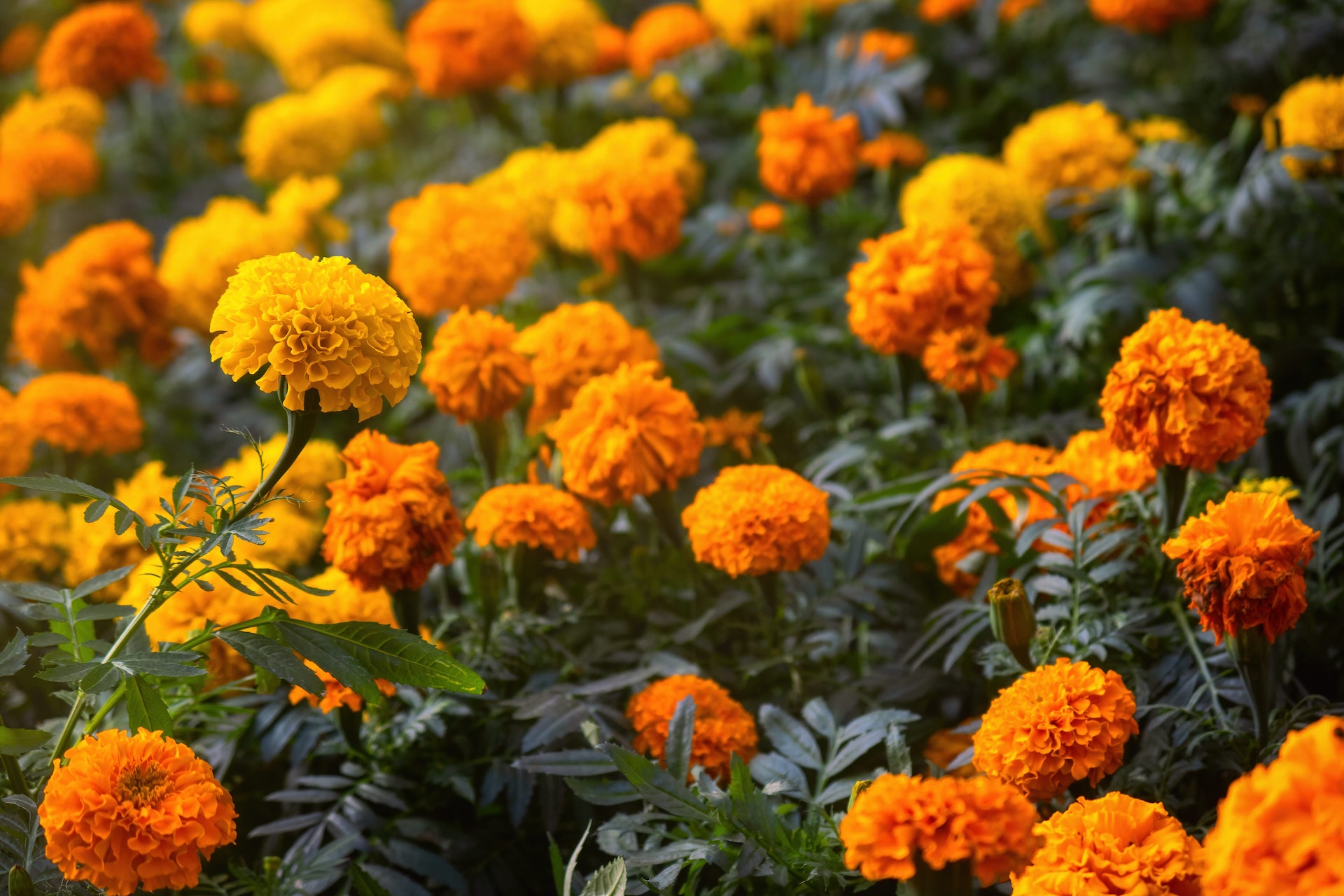Mosquitoes, those tiny but persistent insects, can turn a peaceful evening in your backyard into a maddening battle against itchy bites and buzzing sounds.
Not only are mosquitoes a nuisance, but they also pose health risks due to their ability to transmit diseases such as malaria, dengue fever, and Zika virus.
While chemical-based mosquito repellents are widely available, they often contain harsh ingredients and may have adverse effects on human health and the environment.
Fortunately, there is a natural and eco-friendly solution: using plants to repel mosquitoes. In this article, we will explore seven plants that can effectively keep mosquitoes away from your home forever.
Planting your Way to a Mosquito-free Home
Plants have incredible abilities to ward off mosquitoes and other insects. They emit natural fragrances and compounds that mosquitoes find unappealing, effectively repelling them.
When choosing mosquito-repellent plants, consider factors such as their fragrance, essential oil content, and overall hardiness in your region.
By strategically incorporating these plants around your home, you can create a natural barrier against mosquitoes.
Seven Plants That Effectively Repel Mosquitoes
1. Citronella (Cymbopogon)
Citronella is perhaps the most well-known natural mosquito repellent. Its distinct lemony scent is highly effective in keeping mosquitoes at bay.
I have personally experienced the power of citronella in my backyard. By planting citronella in pots near seating areas and lighting citronella candles, I noticed a significant reduction in mosquito activity. Citronella requires well-draining soil, plenty of sunlight, and regular watering.
2. Lavender (Lavandula)
Lavender not only adds beauty and fragrance to your garden but also acts as a natural mosquito repellent.
The soothing aroma of lavender is delightful to us but repulsive to mosquitoes. I planted lavender bushes near my windows, and not only did they create a lovely visual appeal, but I also noticed fewer mosquitoes entering my home. Lavender thrives in well-drained soil and prefers full sun exposure.
3. Catnip (Nepeta cataria)
Catnip, a member of the mint family, contains a compound called nepetalactone, which mosquitoes find extremely repulsive.
While cats may go wild for catnip, mosquitoes will flee from it. I decided to plant catnip near my outdoor seating area, and the results were impressive.
The scent of catnip wafting through the air acted as a natural mosquito repellent. Catnip grows well in various soil types and requires regular watering.
4. Marigold (Tagetes)
Marigolds are not only colorful and beautiful, but they also possess natural mosquito-repelling properties.
Their distinct scent is particularly effective in deterring mosquitoes. I planted marigolds around my vegetable garden to protect my crops from both pests and mosquitoes. Marigolds thrive in well-drained soil and prefer full sun exposure.
5. Rosemary (Rosmarinus officinalis)
Rosemary, a versatile herb commonly used in culinary dishes, also doubles as a potent mosquito repellent. Its woody fragrance acts as a natural deterrent to mosquitoes.
I planted rosemary near my outdoor kitchen and noticed a significant reduction in mosquito activity. Rosemary prefers well-drained soil, plenty of sunlight, and moderate watering.
6. Basil (Ocimum basilicum)
Basil, a popular culinary herb, emits a strong aroma that repels mosquitoes. I planted basil in pots and placed them strategically near doorways and windows.
Not only did it serve as a natural mosquito repellent, but it also provided me with a fresh supply of aromatic basil leaves for cooking. Basil requires well-drained soil, ample sunlight, and regular watering.
7. Peppermint (Mentha piperita)
Peppermint, with its refreshing and invigorating scent, is highly effective in repelling mosquitoes. I planted peppermint in my backyard, particularly in areas prone to mosquito infestation, such as near standing water sources.
The strong aroma of peppermint helped keep mosquitoes away, allowing me to enjoy my outdoor space in peace. Peppermint thrives in moist soil and partial shade.
Creating a Mosquito-Repelling Garden
To maximize the effectiveness of mosquito-repellent plants, consider designing a garden layout that strategically places these plants in key areas.
You can create a barrier around your patio or seating areas by planting a combination of these plants. Additionally, companion planting techniques can enhance the repellent properties of these plants.
For example, planting basil alongside tomatoes can help deter mosquitoes while benefiting the growth of both plants.
Implementing additional strategies such as installing bug-repellent lighting and using natural mosquito traps can further enhance your mosquito-free garden.
Maintaining Mosquito-Repellent Plants
To ensure the longevity and effectiveness of your mosquito-repellent plants, proper care is essential. Adequate watering, fertilization, and regular pruning are key to keeping the plants healthy and vibrant.
Pay attention to any signs of pests or diseases and address them promptly to prevent any damage to the plants. By maintaining your mosquito-repellent plants, you can enjoy their benefits year after year.
Other Natural Methods to Complement Plant-Based Mosquito Control
While planting mosquito-repellent plants is an effective strategy, it can be further reinforced by adopting other natural methods.
Eliminating stagnant water sources around your property is crucial as mosquitoes breed in standing water. Additionally, using essential oils derived from mosquito-repellent plants, such as citronella oil, can enhance the repellent effect.
You can create your own homemade mosquito repellents using these oils. Furthermore, incorporating mosquito-repellent landscaping techniques, such as using gravel or mulch in place of grass, can help reduce mosquito habitats.
Conclusion
Mosquitoes need not ruin your outdoor experiences or compromise your health. By harnessing the power of nature and incorporating mosquito-repellent plants into your surroundings, you can create a haven free from these pesky insects.
Whether it's the distinctive scent of citronella, the calming presence of lavender, or the invigorating aroma of peppermint, these plants offer a natural and eco-friendly solution to keep mosquitoes at bay.
With careful planning, maintenance, and the incorporation of complementary natural methods, you can transform your home into a mosquito-free sanctuary where you can fully enjoy the beauty of nature.
FAQs
Do these mosquito-repellent plants really work?
Absolutely! These plants have natural compounds and fragrances that mosquitoes find unappealing, effectively repelling them. Many people have experienced significant reductions in mosquito activity by incorporating these plants into their outdoor spaces.
Can I grow these mosquito-repellent plants indoors?
Yes, you can grow some of these plants indoors, such as citronella, lavender, and basil. They require sufficient sunlight and well-draining soil. Placing them near windows or in well-lit areas can help keep mosquitoes away from your home.
How often do I need to water these plants?
Each plant has specific watering requirements, but generally, it's important to keep the soil moist but not waterlogged. Regular watering, ensuring the soil doesn't dry out completely, will help the plants thrive.
Can I use these plants in combination with chemical mosquito repellents?
Yes, you can use these plants alongside chemical mosquito repellents. However, many people prefer relying solely on natural methods to avoid the potential risks associated with chemical-based repellents.
Are these plants safe for pets and children?
Most of these plants are safe for pets and children when used as intended. However, it's always a good idea to supervise children and pets around plants and ensure they do not consume or interact with them excessively.
How long do these mosquito-repellent plants last?
With proper care and maintenance, these plants can last for many years, providing ongoing mosquito control. Regular pruning and fertilization will help ensure their longevity.
Can I use dried leaves or essential oils from these plants for mosquito repellent?
Yes, you can use dried leaves or essential oils extracted from these plants to create your own mosquito repellents. Simply crush dried leaves or mix essential oils with carrier oils, and apply them to your skin or use them in diffusers or candles for an added layer of protection.
Will planting these mosquito-repellent plants attract other pests?
While the primary purpose of these plants is to repel mosquitoes, some people have noticed that they also deter other pests such as flies and gnats. However, every garden is unique, and the presence of certain pests may vary.
Can I plant these mosquito-repellent plants in pots or containers?
Yes, you can plant these mosquito-repellent plants in pots or containers. This allows you to move them around as needed, placing them strategically in outdoor seating areas or near entrances to keep mosquitoes away.
Can I use these mosquito-repellent plants in conjunction with other mosquito control methods?
Definitely! These plants can be used in conjunction with other mosquito control methods, such as removing stagnant water sources, using mosquito traps, or installing bug-repellent lighting. By combining multiple strategies, you can create a more effective mosquito-free environment.








No comments:
Post a Comment